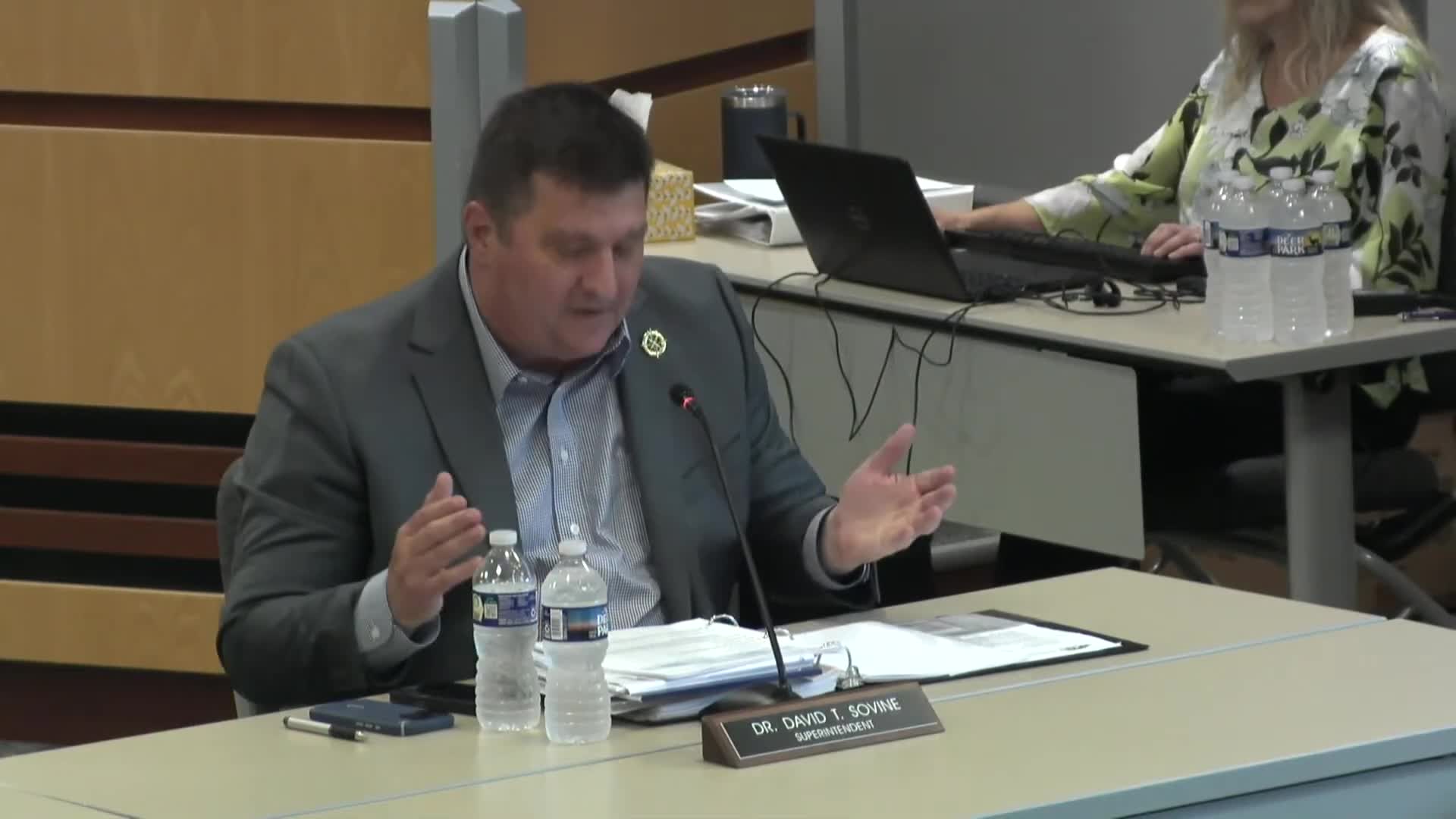District officials outline multi‑year discipline strategy, report fewer referrals but cite chronic absenteeism and mental‑health needs
Get AI-powered insights, summaries, and transcripts
Subscribe
Summary
Associate Superintendent Dr. Webster and director of student services Jesse Jacoby briefed the board on a multiyear plan that pairs staff training with school‑based behavior supports and additional programming to reduce office referrals and support students.
Associate Superintendent Dr. Webster and director of student services Jesse Jacoby briefed the Washington County Board of Education on the district’s three‑year approach to student discipline and school climate, describing staff training, targeted behavior teams and program changes intended to reduce out‑of‑school removals and support instruction.
“Student suspensions in pre‑K, kindergarten, first grade and second grade are actually prohibited,” Jacoby said, as he described the legal framework that restricts exclusionary discipline for the youngest learners unless a federal law violation occurred or a mental‑health consultant and administrator determine immediate return would be unsafe.
The presentation was both a data update and a description of staffing and program changes intended to reduce disruptive incidents. Jacoby said office referrals through April 15 were roughly 17,000 this year, an approximate 11% decline from a little more than 19,000 through the same cutoff last year. Elementary referrals were up slightly, middle‑school referrals fell by roughly 3,000, and high‑school referrals rose at one school that reported increased enforcement of cell‑phone rules and more rapid identification of students cutting class.
Jacoby and Dr. Webster reported unduplicated removal (suspension) rates of about 4.9% for 2022‑23 and roughly 3.8% as of April 15 this year; Jacoby added he had updated the figure to 4.2% the day before the presentation as enrollment and final counts changed. Central office staff said that, as of the briefing, they had processed 34 extended‑suspension/expulsion requests (33 completed): nine resulted in removals of 45 or more days, 13 led to 11–44 day removals, eight were found to be manifestations of a disability at an IEP meeting and three requests were not approved.
District leaders said the decline in referrals at some middle schools corresponds to three factors reported by building principals: visible school security assistants reducing hallway incidents, new professional development on classroom management, and weekly mentoring for new teachers. The security assistants were credited with both prevention and quick response in hallways and restrooms.
To address problems that contribute to removals, the district has taken several steps: a districtwide professional learning series on tier‑1 behavioral strategies and de‑escalation; the addition of assistant principals at some elementary schools (midyear hires) to provide supervision; placement of school‑based board‑certified behavior analysts (BCBAs) in schools; Alt‑1 staffing (a behavior support teacher and para) at four middle schools; combining virtual, evening and behavior‑support programming at the Innovative Learning Center to allow flexible placements; and expanded early‑intervention (Birth‑to‑K) outreach.
School leaders from Besser Elementary, Vester, Paramount, Ruth Ann Monroe Primary, Springfield Middle and others described school‑level practices that mirrored the district plan: skills‑based training for students, BCBA coaching and classroom visits, LiveSchool points and recognition systems, restructured administrative duties to create clearer points of contact, and a focus on family engagement and on‑ramping students to classroom time.
Representatives of local schools reported declines in referrals where supports were added. For example, Besser Elementary cited a reduction from 478 disciplinary referrals in 2022‑23 (through April 30) to 307 the following year at the same point; Besser staff credited a full‑time BCBA, stepped programming for young learners and strengthened SST (student support team) processes.
Several school leaders emphasized chronic absenteeism and unmet mental‑health needs as ongoing barriers. Jacoby and Dr. Webster said the Birth‑to‑K team and community partnerships are intended to reduce later kindergarten deficits, while additional BCBA positions, program classroom redesign and new “enhanced” classrooms are planned to serve students with the most complex needs.
Board members asked for historical referral counts dating to pre‑COVID years (2016‑2019) and for clarity on whether in‑school interventions are being used for K‑2 students. Jacoby and school leaders said many elementary schools already use in‑school intervention (which they distinguish from in‑school suspension) and that schools with fewer staff must be creative to keep students in‑school when possible.
The briefing closed with leaders asking the board to consider priorities for further staffing and programming: assistant principals for remaining elementary schools, additional BCBA coverage for certain campuses (Clear Spring, Smithsburg, Cascade, Emma K. Daub and Maugansville were mentioned), expanded specialized program classrooms, and continued use of COP (County Opportunity Program) grant funds to pilot and scale behavioral supports.
Direct quotes in this article come from district staff and school leaders who presented during the work session.
